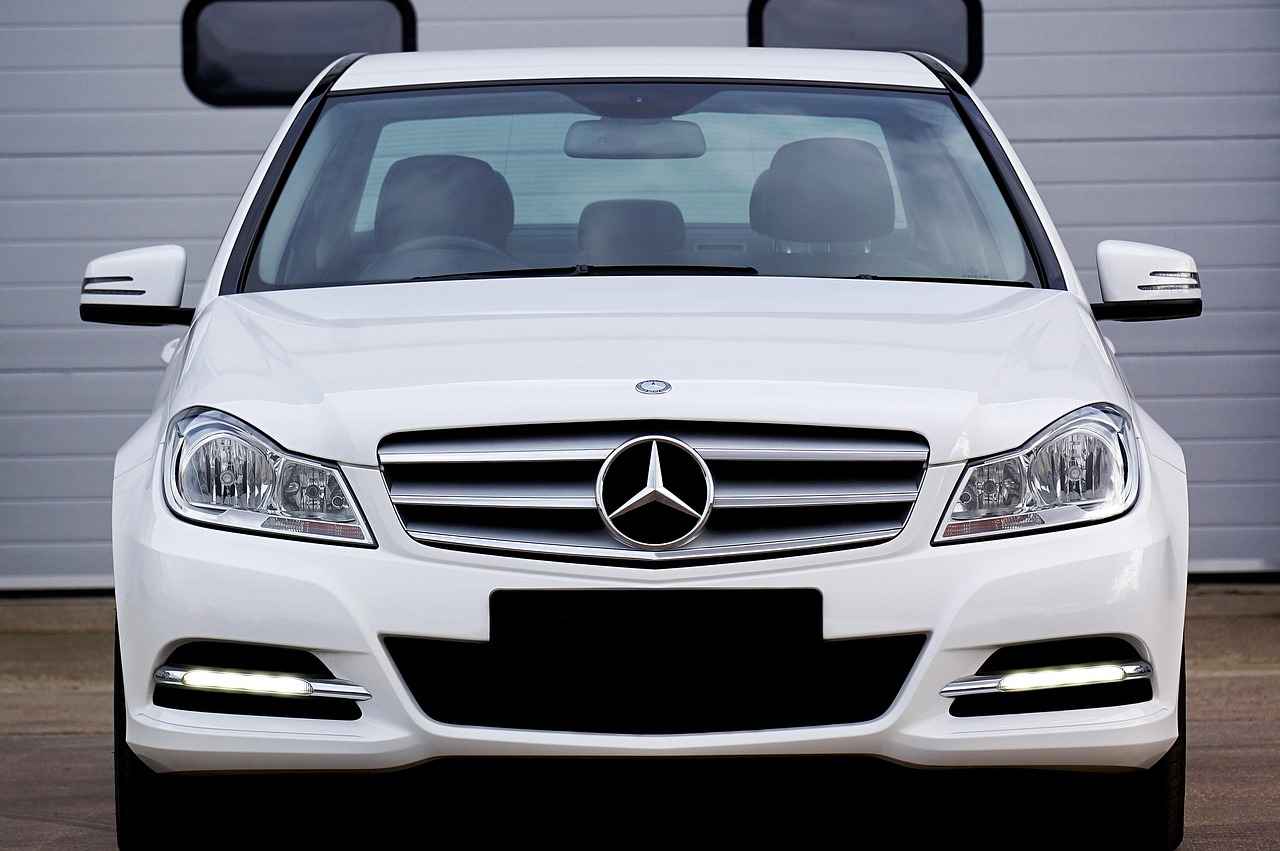The Honda Accord is a popular choice among midsize sedans, known for its reliability, comfort, and performance. However, many potential buyers wonder, does the Honda Accord offer all-wheel drive (AWD) options? This article delves into this question, exploring the features, performance, and comparisons to other vehicles in its class.
All-wheel drive (AWD) is a drivetrain system that powers all four wheels of a vehicle simultaneously, enhancing traction and stability. This feature is particularly beneficial in adverse weather conditions such as rain, snow, or ice. By distributing power to all wheels, AWD improves handling and reduces the likelihood of losing control, making it a valuable option for drivers in regions with challenging climates.
Traditionally, the Honda Accord has not been available with an AWD option. Honda has focused on optimizing the Accord’s front-wheel drive (FWD) system, which provides excellent fuel efficiency and handling characteristics. This design choice may surprise some, especially as many competitors in the midsize sedan segment are now offering AWD. The absence of AWD in the Accord could be attributed to Honda’s commitment to maintaining a balance between performance and fuel economy.
- Enhanced Stability: AWD provides better grip on slippery surfaces, enhancing overall stability.
- Improved Handling: It allows for sharper cornering and better control during sudden maneuvers.
- Increased Confidence: Drivers feel more secure when navigating challenging weather conditions.
When compared to competitors like the Subaru Legacy and Toyota Camry, which offer AWD options, the Honda Accord stands out for its fuel efficiency and overall driving experience. The Legacy, with its standard AWD, is often favored by those living in snowy regions, while the Camry provides an AWD option that appeals to a broader audience. However, the Accord remains a top choice for buyers prioritizing performance and comfort over AWD capabilities.
The Honda Accord is renowned for its impressive performance features, including a range of powerful engines and a well-tuned suspension system. The base engine offers a blend of efficiency and responsiveness, while the available turbocharged options provide a sportier driving experience. Even without AWD, the Accord’s FWD system is designed to deliver a smooth and engaging ride.
While the Accord lacks AWD, other Honda models, such as the Honda CR-V and Honda HR-V, do offer this feature. These SUVs are designed with AWD options to cater to drivers seeking enhanced traction and versatility, making them ideal for various driving conditions.
AWD is particularly advantageous in snowy, rainy, or off-road conditions. In these scenarios, AWD can significantly improve traction and stability, allowing drivers to navigate safely. For those living in regions with harsh winters or frequent rain, opting for a vehicle with AWD can greatly enhance driving confidence.
Investing in AWD typically comes with additional costs, both in terms of the initial purchase price and potential maintenance. AWD systems can add weight to the vehicle, potentially affecting fuel efficiency. Buyers should weigh these financial implications against the benefits of improved traction and handling.
FWD is the standard for the Honda Accord, offering excellent fuel efficiency and a lighter overall weight. In comparison, AWD systems provide better traction but can lead to increased fuel consumption. For many drivers, the benefits of FWD—especially in urban environments—outweigh the advantages of AWD.
Industry experts have mixed opinions on the necessity of AWD in sedans. Some argue that AWD is becoming increasingly important due to changing weather patterns and consumer preferences. Others maintain that FWD remains sufficient for most drivers, particularly in regions with milder climates.
The automotive industry is evolving, and consumer preferences are shifting towards more versatile vehicles. As manufacturers respond to these trends, we may see an increase in AWD options for sedans like the Honda Accord in the future. This evolution could redefine the midsize sedan market, catering to a broader audience seeking both performance and practicality.

What is AWD and Why is it Important?
All-wheel drive (AWD) is a drivetrain system that delivers power to all four wheels of a vehicle simultaneously. This advanced technology is designed to enhance traction and handling, making it an essential feature for many drivers, especially in challenging driving conditions. Understanding the significance of AWD can help consumers make informed decisions when purchasing vehicles, particularly those that will be used in diverse environments.
One of the primary benefits of AWD is its ability to provide superior grip on slippery surfaces. Whether it’s rain-soaked roads, snowy conditions, or muddy trails, AWD systems distribute power to the wheels with the most traction, reducing the likelihood of wheel spin and enhancing stability. This is particularly important for drivers who live in areas prone to severe weather.
In addition to improving traction, AWD also contributes to better handling during cornering. By sending power to all four wheels, AWD can help maintain control and stability, allowing for smoother navigation through turns. This is especially beneficial for sedans like the Honda Accord, where a balance of comfort and performance is sought.
- Increased Safety: AWD enhances vehicle safety by providing better control in adverse weather conditions.
- Improved Performance: Vehicles equipped with AWD often exhibit enhanced performance characteristics, making them more responsive.
- Versatility: AWD vehicles can handle a variety of terrains, making them suitable for both urban and rural driving.
Moreover, AWD systems can vary significantly between manufacturers. Some systems are designed for performance, while others prioritize efficiency. This means that when choosing a vehicle, it’s essential to consider not just whether it has AWD, but also how that system is engineered and how it fits your specific driving needs.
For drivers who frequently encounter challenging driving conditions, such as steep hills or off-road environments, AWD can be a game-changer. It allows for greater confidence and peace of mind, knowing that the vehicle can handle unexpected situations. Additionally, AWD can enhance the overall driving experience, making it more enjoyable and less stressful.
In summary, understanding what AWD is and its importance is crucial for consumers looking for vehicles that offer enhanced traction and handling. This technology not only improves safety and performance but also provides versatility for various driving conditions. As the automotive industry continues to evolve, the demand for AWD in sedans is likely to grow, reflecting changing consumer preferences and the need for vehicles that can adapt to diverse environments.

Does the Honda Accord Offer AWD Options?
The question of whether the Honda Accord offers all-wheel drive (AWD) options is one that many potential buyers consider. Traditionally, the Honda Accord has been designed primarily with front-wheel drive (FWD) in mind. This design choice stems from a variety of factors, including performance, cost, and consumer demand.
One of the main reasons Honda has opted against AWD in the Accord is the vehicle’s target market. The Accord is often marketed as a family sedan, appealing to consumers who prioritize fuel efficiency and reliability over off-road capabilities. By focusing on FWD, Honda has been able to optimize the Accord’s fuel economy, making it an attractive option for daily commuters.
Another significant factor is the weight and complexity associated with AWD systems. Incorporating AWD adds extra components, which can increase the vehicle’s weight and reduce fuel efficiency. Honda has consistently prioritized a balance between performance and efficiency, and maintaining a lighter vehicle helps to achieve this goal. Additionally, the complexity of AWD systems can lead to higher maintenance costs, something that buyers may wish to avoid.
Moreover, the driving conditions that most Accord owners encounter typically do not necessitate AWD. For the majority of drivers, especially those in urban or suburban settings, FWD provides adequate traction and handling. However, it is important to note that there are specific scenarios where AWD can be beneficial, such as in adverse weather conditions like snow or heavy rain.
When comparing the Honda Accord to its competitors, such as the Subaru Legacy and Toyota Camry, it becomes evident that the absence of AWD may impact its competitiveness in certain markets. Both the Legacy and Camry offer AWD options, potentially attracting buyers who prioritize enhanced traction and stability. This is particularly relevant in regions where winter weather is a concern.
Despite the lack of AWD, the Honda Accord is renowned for its impressive performance features. The Accord offers a range of engine options, including turbocharged variants that deliver a spirited driving experience without the need for AWD. The handling is precise, and the ride quality is often praised, making it a strong contender in the midsize sedan segment.
For those who are specifically looking for AWD in a Honda vehicle, there are alternatives available. Models such as the Honda CR-V and Honda Pilot come equipped with AWD options, catering to consumers who require enhanced traction for varying driving conditions.
In conclusion, while the Honda Accord does not traditionally offer AWD, it remains a popular choice among buyers who value fuel efficiency, reliability, and performance. The decision to forgo AWD aligns with Honda’s focus on creating a well-rounded sedan that meets the needs of the majority of its consumers. As consumer preferences evolve, it will be interesting to see if Honda reconsiders its stance on AWD for future Accord models.

What Are the Benefits of AWD in Sedans?
All-Wheel Drive (AWD) systems have become increasingly popular in the automotive world, especially among sedans. The Honda Accord, while traditionally a front-wheel drive vehicle, raises the question of what benefits AWD can offer if it were available. This section delves into the specific advantages of having AWD in sedans, particularly in terms of stability, control, and overall driving experience.
One of the primary benefits of AWD is its ability to enhance traction on various surfaces. In adverse weather conditions such as rain, snow, or ice, AWD provides power to all four wheels, allowing for better grip and reducing the chances of slipping. This is particularly beneficial for drivers who live in regions with harsh winters or frequent rain. The ability to distribute power evenly helps maintain stability, making the vehicle easier to control during unpredictable driving conditions.
| Advantages of AWD | Description |
|---|---|
| Improved Traction | AWD systems provide better grip on slippery surfaces, enhancing safety. |
| Increased Stability | Power is distributed to all wheels, improving vehicle handling. |
| Enhanced Performance | AWD can improve acceleration and cornering capabilities. |
| Versatile Driving Experience | AWD vehicles can handle a variety of terrains and conditions. |
Another significant advantage of AWD is increased stability during cornering and maneuvering. When a sedan like the Accord is equipped with AWD, it can distribute power to the wheels that need it most, allowing for sharper turns and a more controlled driving experience. This is particularly advantageous when navigating winding roads or during sudden evasive maneuvers.
- All-Weather Capability: AWD systems are designed to perform well in a variety of weather conditions, making them ideal for year-round driving.
- Enhanced Performance: With power being sent to all four wheels, acceleration improves, allowing for quicker starts and more confident overtaking.
- Driving Confidence: Knowing that your vehicle can handle different driving conditions instills a sense of confidence in the driver.
In addition to these benefits, AWD can also provide a more engaging driving experience. With better handling and control, drivers may find that they enjoy the act of driving more, especially on curvy roads or during spirited driving. The enhanced performance characteristics of AWD sedans can transform routine commutes into enjoyable journeys.
While the Honda Accord currently does not offer AWD, understanding these benefits can help consumers make informed decisions when considering other vehicles in the sedan category. As the automotive industry continues to evolve, it’s possible that AWD may become a more common feature in sedans, appealing to a wider range of drivers.

How Does the Honda Accord Compare to Competitors?
The Honda Accord has long been a favorite among midsize sedan buyers, celebrated for its reliability, fuel efficiency, and spacious interior. However, one question that often arises is how it compares to competitors that offer all-wheel drive (AWD), such as the Subaru Legacy and Toyota Camry. In this section, we will delve into the differences and similarities, focusing on performance, handling, and consumer preferences.
While the Honda Accord is known for its front-wheel drive (FWD) system, it excels in performance and handling, particularly in dry conditions. The Accord’s turbocharged engines deliver a responsive driving experience, making it a joy to drive. On the other hand, vehicles like the Subaru Legacy and Toyota Camry, equipped with AWD, offer superior traction in adverse weather conditions. This can be a deciding factor for buyers living in regions with heavy snowfall or rain.
When it comes to interior space, the Honda Accord often outshines its competitors. With a spacious cabin and ample legroom, it provides a comfortable ride for both drivers and passengers. The Subaru Legacy and Toyota Camry also offer decent interior space, but the Accord’s design prioritizes comfort, making long drives more enjoyable.
Another critical aspect to consider is fuel efficiency. The Honda Accord, with its efficient engine options, typically achieves better fuel economy compared to AWD competitors. The added weight and complexity of AWD systems can lead to decreased efficiency, which is a significant consideration for budget-conscious consumers. For instance, while the Subaru Legacy’s AWD provides excellent traction, it often sacrifices fuel economy, which may not be ideal for all buyers.
Pricing is a crucial factor when comparing these vehicles. The Honda Accord generally offers a more competitive price point than its AWD counterparts, making it an attractive option for those seeking value without compromising on features. The Subaru Legacy and Toyota Camry, while offering AWD, often come with a higher price tag, especially when considering the additional costs associated with AWD maintenance and repairs.
Ultimately, consumer preferences play a significant role in the decision-making process. Many buyers prioritize reliability and cost-effectiveness, which the Honda Accord consistently delivers. However, those who value all-weather capability may lean towards the Subaru Legacy or Toyota Camry. Each vehicle has its strengths, and understanding these can help buyers make an informed choice.
In summary, while the Honda Accord does not offer AWD, it remains a strong contender in the midsize sedan market due to its performance, comfort, and fuel efficiency. When comparing it to AWD competitors like the Subaru Legacy and Toyota Camry, it is essential to weigh the benefits of AWD against the Accord’s strengths. Ultimately, the best choice will depend on individual needs and driving conditions.

What Are the Performance Features of the Honda Accord?
The Honda Accord has long been celebrated for its blend of style, comfort, and performance. As a midsize sedan, it is designed to cater to a wide range of drivers, from daily commuters to those seeking a bit more excitement on the road. In this section, we will delve into the performance features of the Honda Accord, focusing on its engine options, handling characteristics, and the overall driving experience it offers, even without the availability of all-wheel drive (AWD).
The Honda Accord provides a selection of robust engine options that cater to different driving preferences. The base model is equipped with a 1.5-liter turbocharged inline-4 engine that produces an impressive 192 horsepower. This engine strikes a balance between power and fuel efficiency, making it an excellent choice for those who prioritize economy without sacrificing performance.
For those seeking enhanced power, the 2.0-liter turbocharged inline-4 engine is available, generating up to 252 horsepower. This engine is paired with a 10-speed automatic transmission, providing a smooth and responsive driving experience. The transition between gears is seamless, allowing for a more engaging drive.
One of the standout features of the Honda Accord is its handling. The car is designed with a front-wheel-drive (FWD) layout, which contributes to its nimble handling characteristics. The Accord’s suspension system is finely tuned, offering a perfect blend of comfort and sportiness. The MacPherson strut front suspension and the multi-link rear suspension work in harmony to absorb bumps and provide stability during cornering.
Drivers will appreciate the Accord’s precise steering, which enhances confidence on winding roads. The car feels agile and responsive, allowing for quick maneuvers when needed. Additionally, the Accord’s low center of gravity contributes to its stability, making it a pleasure to drive in various conditions.
Inside the Honda Accord, the focus on driver comfort and convenience is evident. The cabin is spacious, with high-quality materials that create an inviting atmosphere. The layout is intuitive, with easy access to controls and a user-friendly infotainment system. This attention to detail enhances the overall driving experience, ensuring that both the driver and passengers enjoy the ride.
Despite lacking AWD, the Honda Accord performs admirably in various weather conditions. The FWD system provides adequate traction in light rain and snow, making it a practical choice for many drivers. Moreover, the car’s advanced safety features, including adaptive cruise control and lane-keeping assist, contribute to a secure driving experience.
In summary, the Honda Accord excels in performance features, offering a range of powerful engine options, superb handling, and a comfortable driving experience. While it may not offer AWD, its FWD system is capable enough for most driving scenarios. The Accord remains a top contender in the midsize sedan market, appealing to those who seek a reliable vehicle that delivers on performance and comfort.

Are There Alternative Honda Models with AWD?
The absence of all-wheel drive (AWD) in the Honda Accord can be a drawback for some drivers, particularly those living in regions with challenging weather conditions. However, Honda offers several other models that do incorporate AWD, catering to those who prioritize enhanced traction and stability. In this section, we will explore the alternative Honda models equipped with AWD and discuss their benefits.
- Honda CR-V: The CR-V is one of Honda’s most popular SUVs, known for its spacious interior and family-friendly features. The available AWD option enhances its capability on slippery roads, making it ideal for winter driving.
- Honda HR-V: This subcompact SUV also offers AWD, providing drivers with a versatile option for urban and rural settings. Its compact size and efficient design make it a great choice for those seeking a smaller vehicle with the benefits of AWD.
- Honda Pilot: As a midsize SUV, the Pilot comes standard with AWD on certain trims, making it suitable for larger families or those needing extra cargo space. Its robust performance in various terrains is a significant advantage.
- Honda Ridgeline: This unique pickup truck features an available AWD system, allowing it to handle off-road conditions and heavy loads effectively. The Ridgeline combines the utility of a truck with the comfort of an SUV.
Choosing a Honda model with AWD provides several advantages:
- Improved Traction: AWD systems distribute power to all four wheels, enhancing grip on slippery surfaces such as snow, ice, or mud.
- Enhanced Stability: Vehicles equipped with AWD tend to have better stability during cornering and adverse conditions, reducing the risk of skidding.
- Versatility: AWD models are more versatile, allowing for a broader range of driving experiences—from daily commutes to weekend adventures.
- Increased Resale Value: Vehicles with AWD often have higher resale values, as they are in demand among buyers looking for enhanced performance.
While the Honda Accord excels in fuel efficiency and comfort, it lacks the AWD option that many competitors offer. Models like the CR-V and Pilot not only provide AWD but also deliver additional space and utility, making them more suitable for families or outdoor enthusiasts. On the other hand, the Accord remains a top choice for those who prioritize a smooth ride and advanced technology over off-road capabilities.
When deciding on a Honda model with AWD, consider your driving habits and local climate. If you frequently encounter harsh weather or enjoy outdoor activities, an AWD vehicle could significantly enhance your driving experience. Additionally, evaluate the cost implications, as AWD models typically come at a premium compared to their front-wheel drive (FWD) counterparts.
In summary, while the Honda Accord does not offer AWD, Honda’s lineup includes several models that do, each with unique benefits catering to different needs. Whether you opt for an SUV like the CR-V or a versatile pickup like the Ridgeline, you can enjoy the advantages of AWD without sacrificing the quality and reliability that Honda is known for.

What Are the Driving Conditions Where AWD is Beneficial?
All-wheel drive (AWD) systems are designed to enhance vehicle performance across various driving conditions. Understanding when and where AWD is beneficial can help drivers make informed decisions. Below, we explore specific scenarios where AWD proves to be a valuable asset.
- Rainy Weather: During heavy rain, roads can become slick and treacherous. AWD helps distribute power to all four wheels, improving traction and reducing the likelihood of hydroplaning. This feature is particularly advantageous for drivers who frequently navigate wet conditions.
- Snow and Ice: In regions that experience harsh winters, AWD is invaluable. It provides better grip on icy or snow-covered roads, allowing for smoother acceleration and safer cornering. Drivers can feel more confident when tackling winter weather with an AWD vehicle.
- Off-Road Conditions: For those who enjoy outdoor adventures, AWD enhances performance on unpaved roads and rough terrains. Whether traversing gravel paths or muddy trails, AWD systems help maintain control and stability, making off-road experiences more enjoyable and safe.
- Hilly Areas: In mountainous or hilly regions, AWD can significantly improve handling and traction. Climbing steep inclines or navigating downhill slopes becomes easier with power distributed to all wheels, reducing the risk of slippage.
- Variable Terrain: If your driving route includes a mix of road conditions—such as transitioning from dry pavement to gravel or dirt—AWD can adapt to these changes seamlessly. This versatility allows for a smoother driving experience without the need for constant adjustments.
- Heavy Loads: When carrying heavy loads, whether for work or leisure, AWD can enhance stability. It helps manage the additional weight, ensuring that the vehicle remains balanced and responsive, particularly on uneven surfaces.
In summary, AWD offers significant advantages in various driving conditions, particularly when faced with adverse weather or challenging terrains. By understanding these scenarios, drivers can better appreciate the value of AWD in enhancing safety and performance.

What Are the Costs Associated with AWD?
When considering a vehicle that features All-Wheel Drive (AWD), it’s essential to understand the potential financial implications. While AWD systems can enhance traction and control, they often come with additional costs compared to traditional Front-Wheel Drive (FWD) options. This section will break down the various financial aspects associated with choosing AWD over FWD, helping prospective buyers make informed decisions.
| Cost Factor | AWD | FWD |
|---|---|---|
| Initial Purchase Price | $2,000 – $4,000 more | Standard pricing |
| Fuel Efficiency | Lower MPG | Higher MPG |
| Maintenance Costs | Higher due to complex systems | Generally lower |
| Tire Replacement | More frequent and expensive | Standard costs |
Initial Purchase Price: One of the most significant factors to consider is the initial purchase price. Vehicles with AWD typically come at a premium, often ranging from $2,000 to $4,000 more than their FWD counterparts. This upfront cost can be a deciding factor for many buyers.
Fuel Efficiency: Another aspect to consider is fuel efficiency. AWD systems tend to be less fuel-efficient than FWD systems, resulting in higher fuel expenses over time. Depending on driving habits and conditions, this could translate to a significant financial impact.
Maintenance Costs: The complexity of AWD systems can lead to higher maintenance costs. These systems often require specialized care and parts, which can add up over the vehicle’s lifespan. In contrast, FWD vehicles generally have simpler mechanics, leading to lower maintenance costs.
Tire Replacement: Tire wear can also be a concern. AWD vehicles may require more frequent tire replacements due to the additional strain placed on the tires. This can result in higher overall costs compared to FWD vehicles, where tire wear is typically less pronounced.
In summary, while AWD offers enhanced traction and stability, it is crucial to weigh these benefits against the additional costs associated with this feature. Buyers should consider their driving needs and budget carefully before making a decision. Ultimately, understanding the financial implications of AWD versus FWD can lead to a more informed and satisfying vehicle purchase.

How Does FWD Compare to AWD in the Honda Accord?
The Honda Accord has long been a favorite among midsize sedan enthusiasts, primarily due to its combination of performance, comfort, and reliability. One of the critical decisions prospective buyers face is whether to choose front-wheel drive (FWD) or consider alternatives like all-wheel drive (AWD). In this section, we will delve into the differences between FWD and AWD, specifically in the context of the Honda Accord and similar vehicles.
Understanding the mechanics of FWD and AWD is essential for making an informed decision. FWD vehicles, like the Honda Accord, direct power to the front wheels, which typically results in better fuel efficiency and lighter weight. In contrast, AWD systems distribute power to all four wheels, enhancing traction, especially in challenging weather conditions.
| Feature | FWD | AWD |
|---|---|---|
| Traction | Good in dry conditions | Excellent in wet or slippery conditions |
| Fuel Efficiency | Higher | Lower |
| Weight | Lighter | Heavier |
| Cost | Generally lower | Generally higher |
FWD vehicles, including the Honda Accord, are often more fuel-efficient than their AWD counterparts. This efficiency stems from the reduced weight and simpler drivetrain design of FWD systems. Consequently, drivers can expect better mileage, making FWD a more economical choice for daily commuting.
While the Honda Accord does not offer AWD, it’s essential to recognize scenarios where AWD excels. In regions with heavy snowfall or frequent rain, AWD provides enhanced stability and control, allowing drivers to navigate safely. Additionally, off-road conditions can benefit from the superior traction offered by AWD systems.
Choosing AWD typically comes with a higher upfront cost due to the complexity of the drivetrain and additional components. Moreover, maintenance and repair costs for AWD systems can also be higher, making FWD a more budget-friendly option for many consumers.
Automotive experts often highlight that while AWD offers significant advantages in specific conditions, FWD remains a practical choice for most drivers. Many analysts argue that for urban commuting and general driving, the benefits of FWD, such as fuel efficiency and lower costs, outweigh the advantages of AWD.
In summary, while the Honda Accord is firmly rooted in the FWD category, understanding the differences between FWD and AWD is crucial for consumers. Each system has its strengths and weaknesses, and the best choice ultimately depends on individual driving needs and conditions. For those prioritizing fuel efficiency and cost, FWD is likely the better option, while AWD may be worth considering for drivers in harsher climates.

What Do Experts Say About AWD in Sedans?
When it comes to all-wheel drive (AWD) in sedans, opinions among industry experts can be quite diverse. As the automotive market evolves, so do consumer preferences and the necessity of AWD in various vehicle classes. This section delves into the insights provided by automotive analysts, shedding light on the growing trend of AWD in sedans and what it means for consumers.
One of the primary reasons for the increasing interest in AWD among sedans is the enhanced traction and stability it offers. According to automotive analysts, AWD systems can significantly improve a vehicle’s performance in adverse weather conditions, such as rain or snow. This capability provides drivers with greater confidence when navigating challenging road conditions. Many experts argue that for consumers living in regions with harsh winters, the inclusion of AWD in sedans is not just a luxury but a necessity.
However, not all analysts agree on the importance of AWD in sedans. Some experts highlight that the majority of sedan buyers prioritize fuel efficiency and cost-effectiveness, areas where front-wheel drive (FWD) systems often excel. These analysts suggest that the added weight and complexity of AWD systems can lead to decreased fuel efficiency, which may deter environmentally conscious consumers. They emphasize that for many drivers, especially those in urban environments, FWD is more than adequate for daily commuting.
Another aspect to consider is the market competition. Brands like Subaru and Audi have long championed AWD in their sedan offerings, effectively creating a niche market. This has led to a perception that AWD is synonymous with performance and safety. As a result, some automotive experts believe that traditional sedan manufacturers, such as Honda and Toyota, may need to adapt to this trend to remain competitive, especially among younger buyers who prioritize versatility and safety features.
In addition to performance, experts also point out the potential for increased resale value associated with AWD-equipped vehicles. As consumer preferences shift, sedans that offer AWD may become more desirable in the used car market, leading to better long-term value for owners. Analysts suggest that manufacturers should consider this trend when designing future models, as it could influence purchasing decisions.
Furthermore, the advancements in technology have made AWD systems more efficient and lighter, which could mitigate some of the concerns regarding fuel consumption. Experts predict that as these technologies continue to evolve, we may see a broader acceptance of AWD in sedans, particularly as manufacturers strive to meet the demands of safety and performance.
In conclusion, the debate surrounding AWD in sedans is multifaceted, with valid points on both sides. While many experts see the benefits of AWD in enhancing safety and performance, others caution against the potential downsides concerning fuel efficiency and cost. As the automotive landscape continues to change, it remains to be seen how manufacturers will adapt to consumer preferences and whether AWD will become a standard feature in the sedan market.

What Are the Future Trends for AWD in Sedans?
The automotive landscape is undergoing a significant transformation, especially in the realm of all-wheel drive (AWD) technology. As consumer preferences shift towards vehicles that offer enhanced performance and safety, the demand for AWD in sedans, including popular models like the Honda Accord, is on the rise. This section delves into the potential future trends regarding AWD availability in sedans, exploring various factors that may influence this evolution.
Traditionally, sedans have been associated with front-wheel drive (FWD) systems, which are generally sufficient for most driving conditions. However, as weather patterns become more unpredictable and driving conditions vary, consumers are increasingly seeking vehicles that can handle adverse situations with ease. AWD provides improved traction, stability, and control, making it an attractive option for buyers.
- Safety Concerns: Many drivers prioritize safety, especially in regions prone to snow or rain. AWD can significantly improve vehicle handling in these conditions.
- Performance Expectations: Consumers are looking for vehicles that not only perform well but also provide a sense of confidence behind the wheel.
- Environmental Considerations: With advancements in technology, AWD systems are becoming more fuel-efficient, appealing to eco-conscious buyers.
As manufacturers invest in research and development, we can expect to see innovative AWD technologies that enhance performance without compromising fuel efficiency. For instance, systems that automatically distribute power to the wheels with the most traction can provide a seamless driving experience. This technology is already being integrated into various models, and its presence in sedans is likely to become more common.
The competition among automakers is fierce, and many brands are expanding their AWD offerings to attract a wider audience. Subaru, known for its AWD capabilities, has set a high standard that other manufacturers, including Honda, may feel pressured to meet. As consumer demand for AWD sedans grows, it is plausible that Honda will consider integrating AWD into the Accord to stay competitive.
With the introduction of AWD in sedans, there may be implications for pricing. Typically, AWD systems add to the cost of a vehicle, and consumers should be prepared for potential price increases. However, the long-term benefits of enhanced safety and performance may justify this cost for many buyers.
In summary, the future of AWD in sedans appears promising, driven by evolving consumer preferences, technological advancements, and competitive market dynamics. As more manufacturers recognize the value of AWD in enhancing vehicle appeal, we may soon see models like the Honda Accord offering this feature to meet the demands of modern drivers. The shift towards AWD in sedans reflects a broader trend in the automotive industry, where adaptability and performance are becoming paramount.
Frequently Asked Questions
- Does the Honda Accord have AWD?
No, the Honda Accord does not offer all-wheel drive (AWD) options. It primarily comes with front-wheel drive (FWD), which is designed to provide excellent handling and fuel efficiency.
- What are the benefits of AWD in sedans?
AWD enhances stability and traction, especially in challenging weather conditions like rain or snow. It helps distribute power to all four wheels, improving control and confidence while driving.
- How does the Honda Accord compare to competitors with AWD?
While the Accord lacks AWD, models like the Subaru Legacy and Toyota Camry offer this feature. These competitors may provide better handling in adverse conditions, but the Accord excels in fuel efficiency and overall performance.
- Are there other Honda models that offer AWD?
Yes, Honda has other models like the CR-V and HR-V that come with AWD options. These vehicles are designed for those who need enhanced traction and versatility.
- What are the costs associated with choosing AWD?
Opting for AWD can lead to higher purchase prices, increased maintenance costs, and potentially lower fuel efficiency compared to FWD models. It’s important to weigh these factors based on your driving needs.



